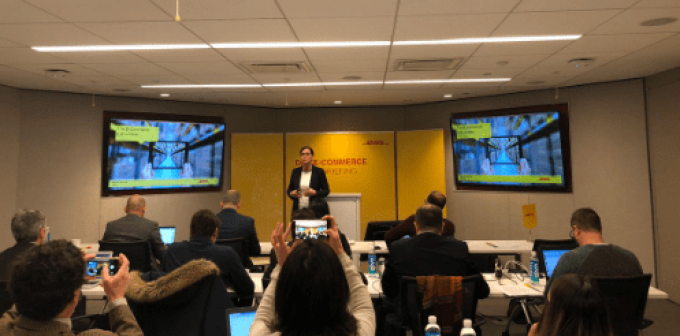DHL rockets – but time ‘for Global Forwarding to catch up with DSV’
…and Schenker dilution might just help

Ballooning urbanisation and the spread of smartphones has increased the complexity of last-mile logistics, according to a new report.
Shortening the Last Mile, put together for Deutsche Post DHL by Euromonitor International, found that in the past decade, the world’s urban population grew almost 25%, while e-commerce sales soared 451%.
And chief commercial officer of DHL Katja Busch said despite this massive surge in online sales, profitability for logistics operators had been hobbled.
She said: “Even now, it is still incredibly hard to earn anything as a ...
Amazon pushes into LTL for small package fulfilment and UPS does a u-turn
New senior management for DSV as it readies for DB Schenker takeover
Volumes set to 'fall off a cliff' as US firms hit the brakes on sourcing and bookings
Asian exporters scramble for ships and boxes to beat 90-day tariff pause
Temporary tariff relief brings on early transpacific peak season
'Tariff madness' will prompt renegotiation of ocean shipping contracts
Forwarders 'allowing the fox into the chicken run' by supporting 'hungry' carriers
Response to tariffs by Chinese importers may see extra costs for US shippers

Comment on this article